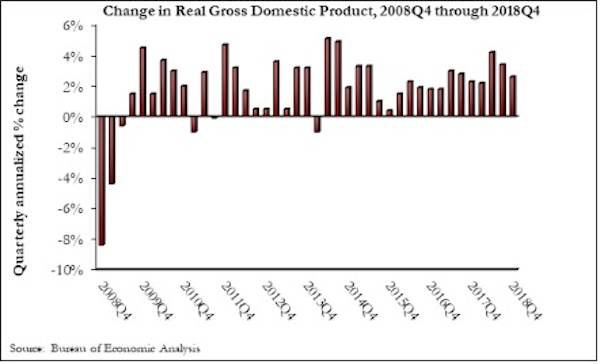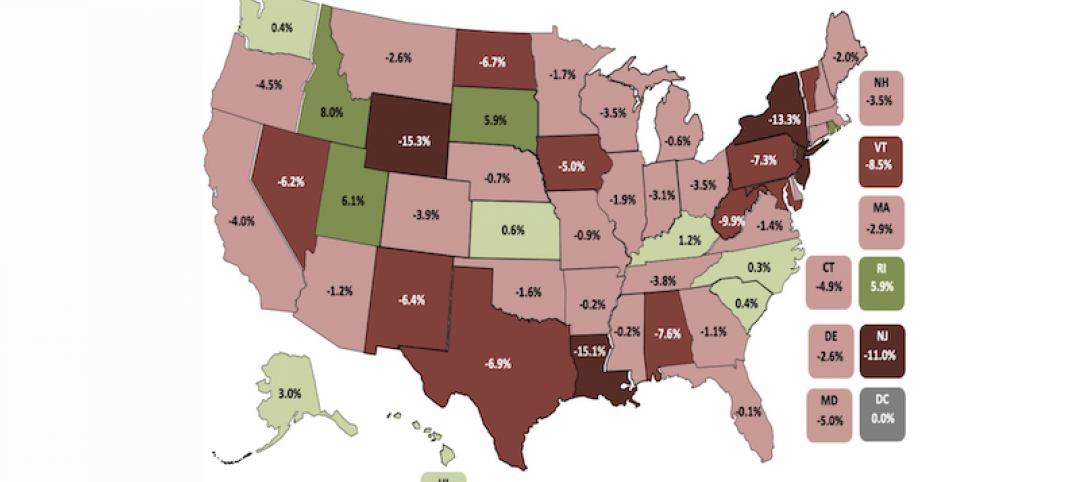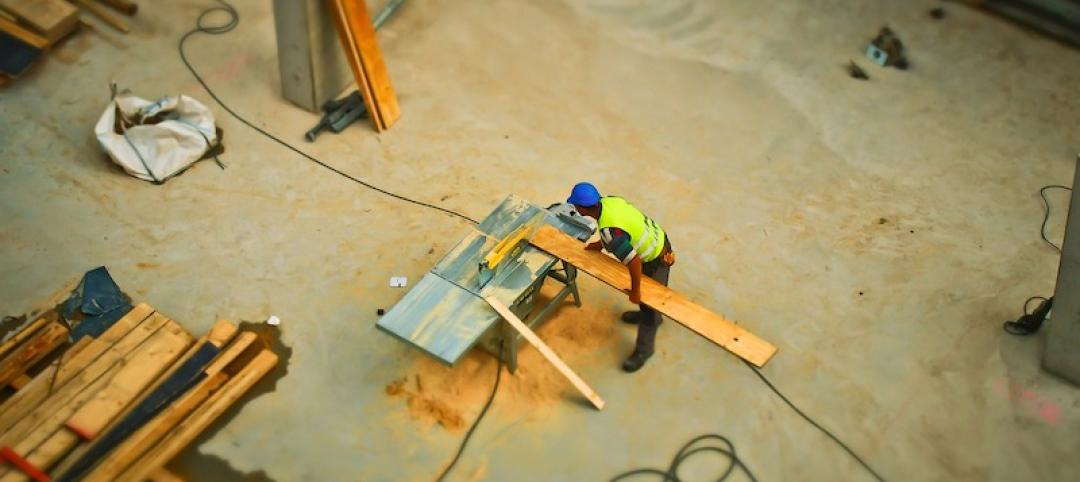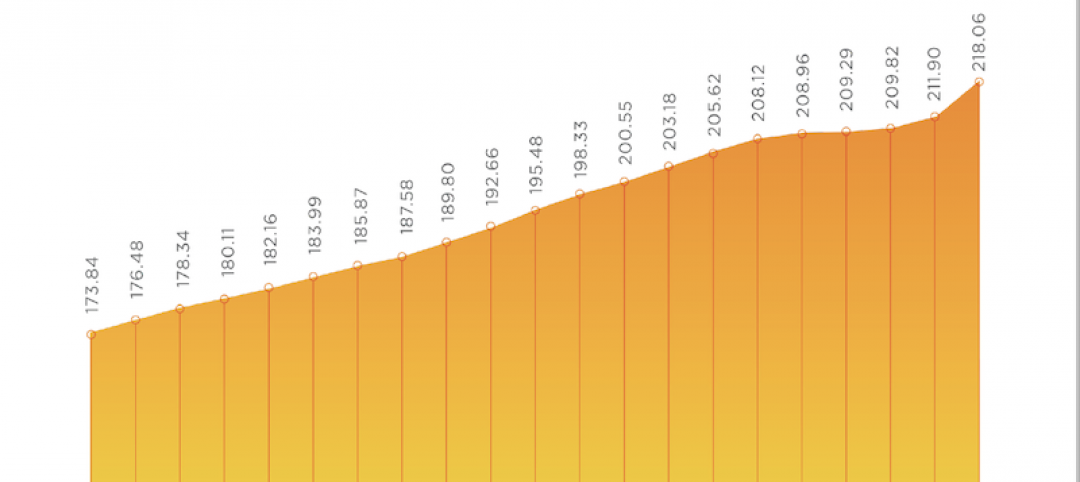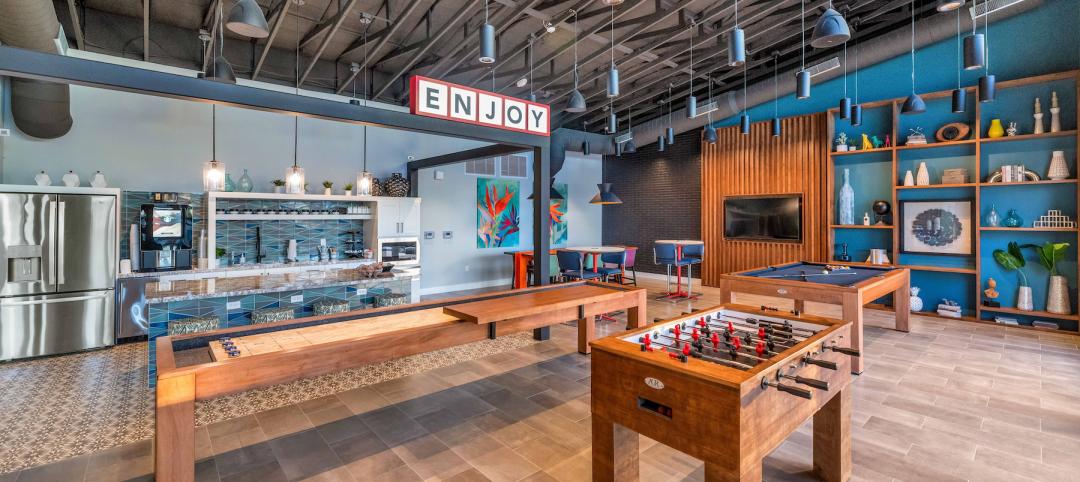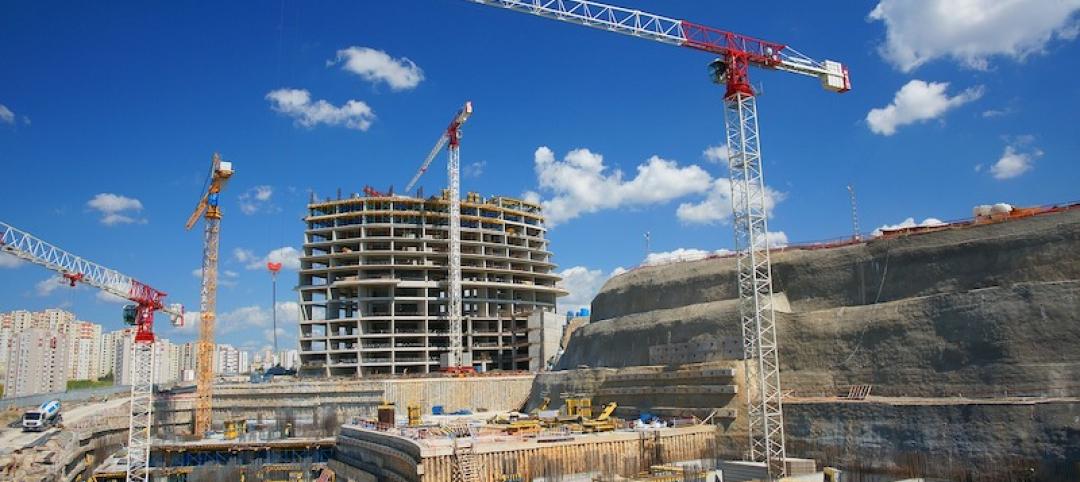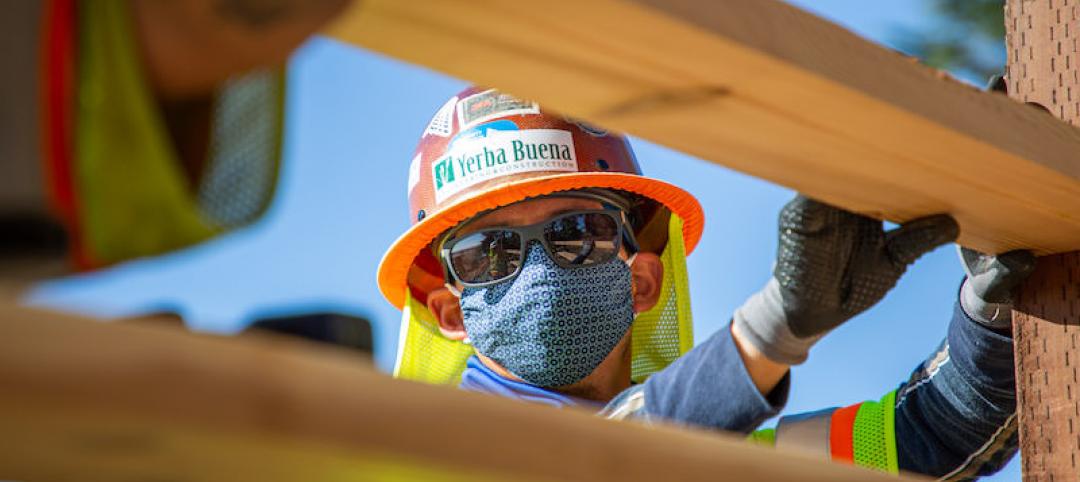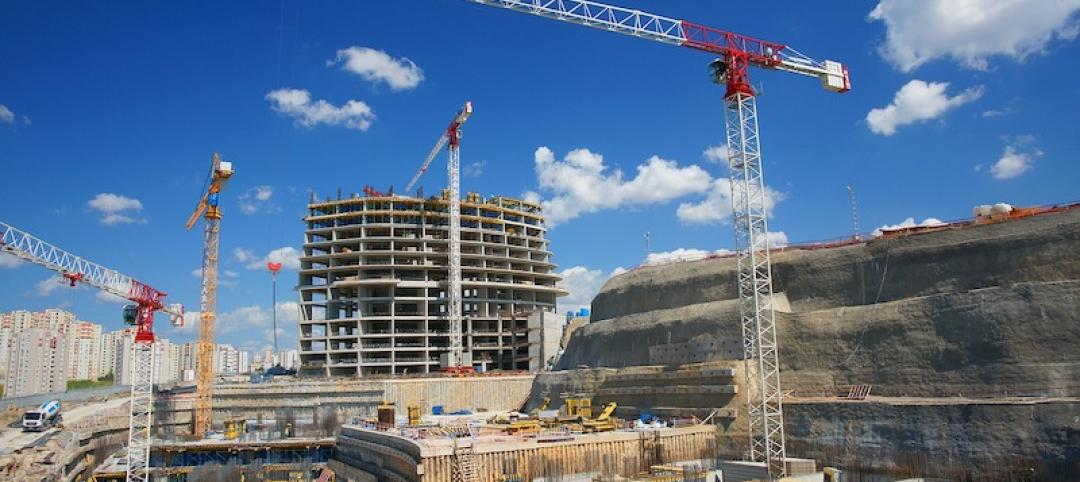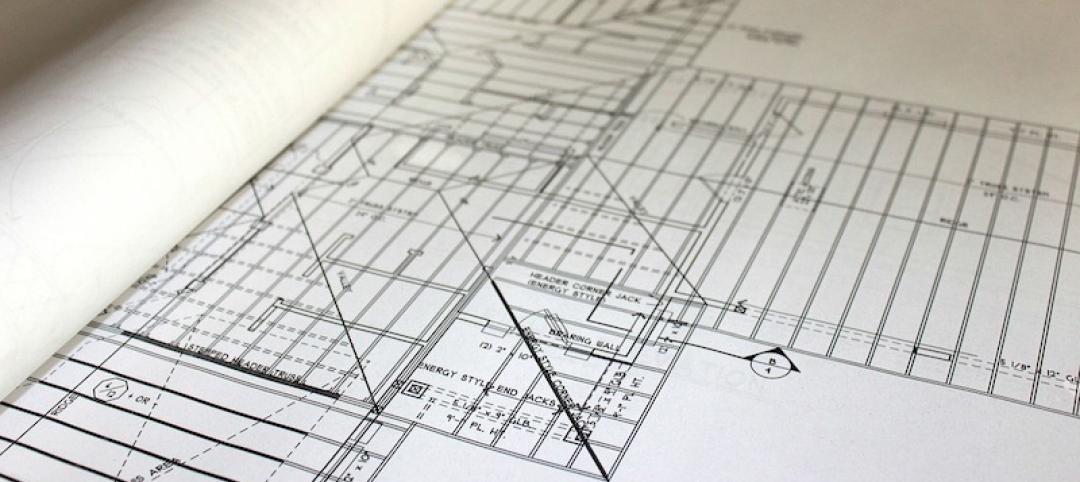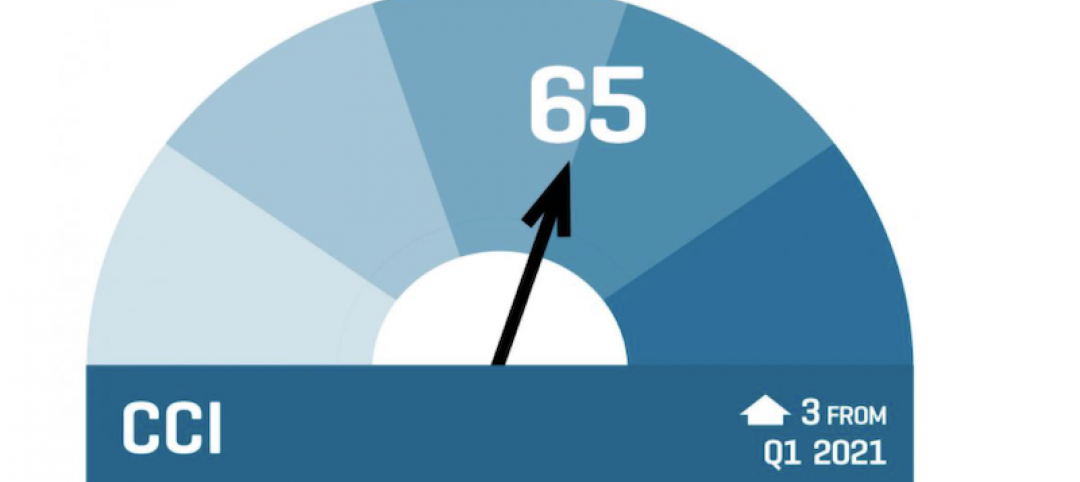The U.S. economy grew at an annual rate of 2.6% in the fourth quarter of 2018, according to an Associated Builders and Contractors analysis of data published today by the U.S. Bureau of Economic Analysis. Year-over-year GDP growth was 3.1%, while average growth for 2018 was 2.9%.
“Today’s GDP report confirms continued strong investment in nonresidential segments in America,” said ABC Chief Economist Anirban Basu. “Separately, construction spending data show significant expenditures on the construction of data centers, hotel rooms, theme parks and fulfillment centers. These data also indicate stepped up public construction spending in categories such as transportation, education, and water systems. Despite that, today’s GDP release indicated that investment in nonresidential structures actually declined 4.2% on an annualized basis during last year’s fourth quarter. Despite that setback, this form of investment was up by 5% for the entirety of 2018.
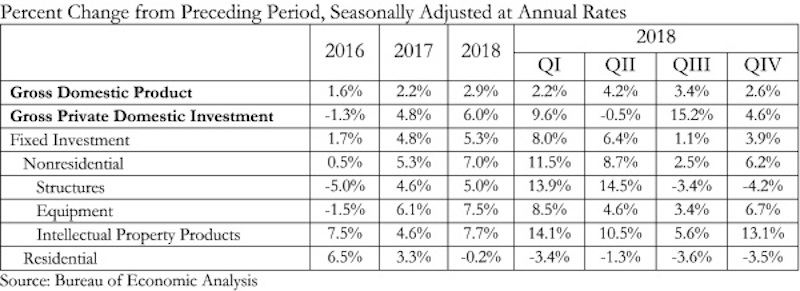
“Undoubtedly, some attention will be given to the fact that the U.S. economy expanded by just shy of 3% in 2018,” said Basu. “Unless that figure is revised upward in subsequent releases, it will mean that America has failed to reach the 3% annual threshold since 2005. But while much attention will be given to a perceived shortfall in growth, the fourth quarter figure of 2.6% signifies that the U.S. economy entered this year with substantial momentum. Were it not for a weak residential construction sector, 3% growth would have been attained. Moreover, the data indicate strength in disposable income growth and in business investment.
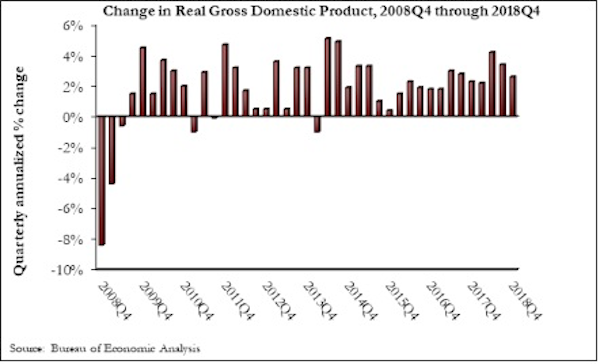
“It is quite likely that the U.S. economy will expand at around 2% this year,” said Basu. “Though interest rates remain low and hiring is still brisk, a number of leading indicators suggest that the nation’s economy will soften somewhat during the quarters ahead, which can be partly attributed to a weakening global economy. This won’t unduly impact nonresidential construction activity, however, since the pace of activity in this segment tends to lag the overall economy, and strong nonresidential construction spending expected in 2019. Finally, ABC’s Construction Backlog Indicator continues to reflect strong demand for contractors, which have nearly nine months of work lined up.”
Related Stories
Market Data | Jul 19, 2021
Construction employment trails pre-pandemic level in 39 states
Supply chain challenges, rising materials prices undermine demand.
Market Data | Jul 15, 2021
Producer prices for construction materials and services soar 26% over 12 months
Contractors cope with supply hitches, weak demand.
Market Data | Jul 13, 2021
ABC’s Construction Backlog Indicator and Contractor Confidence Index rise in June
ABC’s Construction Confidence Index readings for sales, profit margins and staffing levels increased modestly in June.
Market Data | Jul 8, 2021
Encouraging construction cost trends are emerging
In its latest quarterly report, Rider Levett Bucknall states that contractors’ most critical choice will be selecting which building sectors to target.
Multifamily Housing | Jul 7, 2021
Make sure to get your multifamily amenities mix right
One of the hardest decisions multifamily developers and their design teams have to make is what mix of amenities they’re going to put into each project. A lot of squiggly factors go into that decision: the type of community, the geographic market, local recreation preferences, climate/weather conditions, physical parameters, and of course the budget. The permutations are mind-boggling.
Market Data | Jul 7, 2021
Construction employment declines by 7,000 in June
Nonresidential firms struggle to find workers and materials to complete projects.
Market Data | Jun 30, 2021
Construction employment in May trails pre-covid levels in 91 metro areas
Firms struggle to cope with materials, labor challenges.
Market Data | Jun 23, 2021
Construction employment declines in 40 states between April and May
Soaring material costs, supply-chain disruptions impede recovery.
Market Data | Jun 22, 2021
Architecture billings continue historic rebound
AIA’s Architecture Billings Index (ABI) score for May rose to 58.5 compared to 57.9 in April.
Market Data | Jun 17, 2021
Commercial construction contractors upbeat on outlook despite worsening material shortages, worker shortages
88% indicate difficulty in finding skilled workers; of those, 35% have turned down work because of it.


